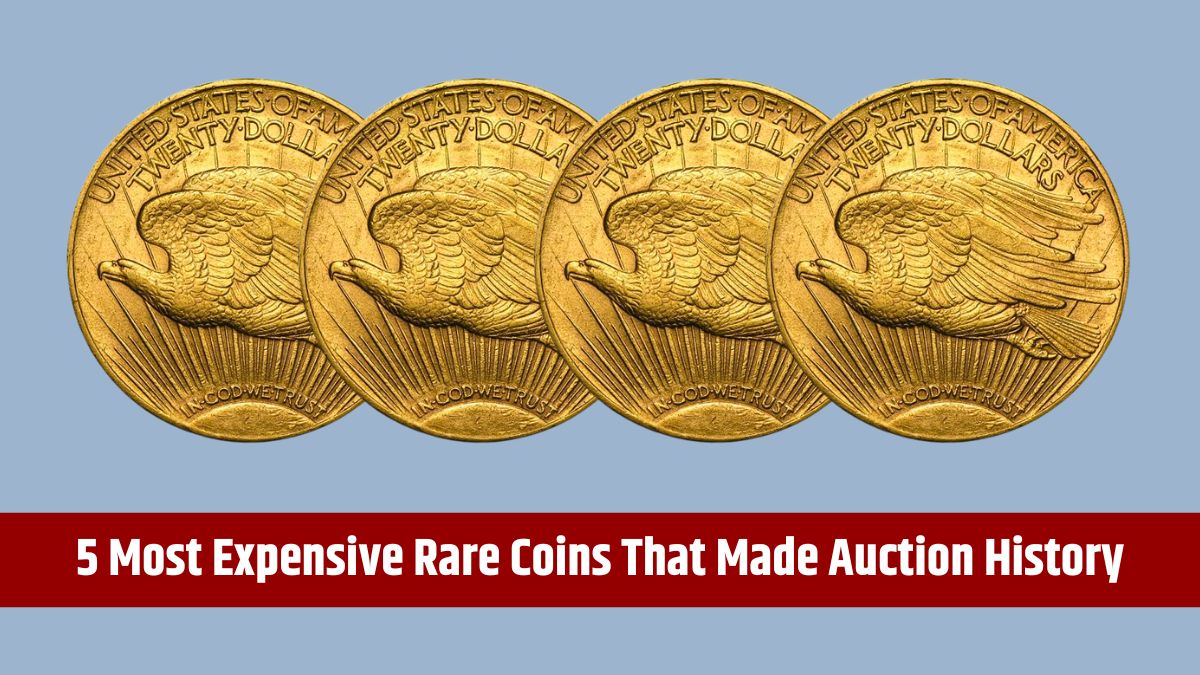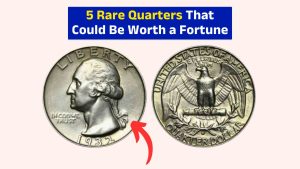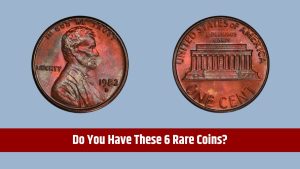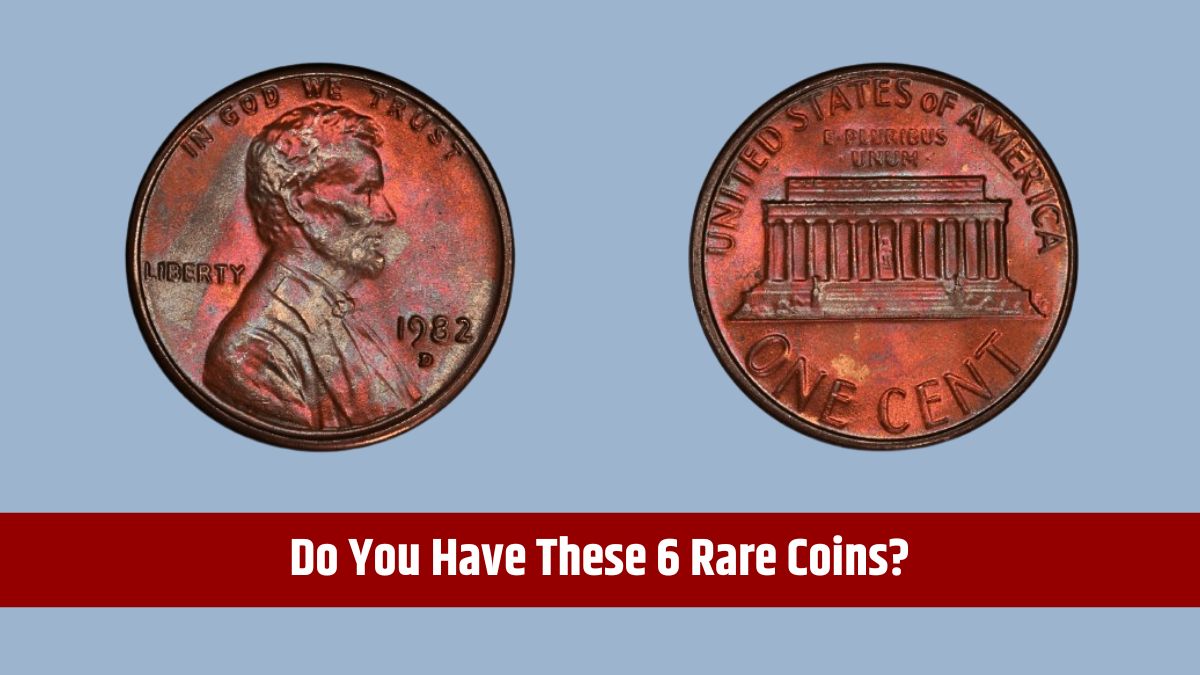Rare coins aren’t just metal—they’re time machines, treasures, and, for some lucky collectors, million-dollar paydays. From the mysterious 1913 Liberty Head Nickel to the dazzling Saint-Gaudens Double Eagle, some coins have rewritten the auction record books. But what makes these little artifacts so valuable? And could you have one sitting unnoticed in your collection?
Let’s cut into five legendary coins that shattered auction records, know what drives their jaw-dropping values, and learn how you can start identifying valuable coins like a pro.
Table of Contents
Origins
Coins have been used for centuries, but only a few ever rise to legendary status. What separates common coins from million-dollar pieces is a mix of rarity, condition, historical relevance, and collector demand. Think of these rare coins as the Picasso paintings of the numismatic world—unique, valuable, and rich with history.
While millions of coins were produced over time, only a handful were struck in limited numbers or under special circumstances, making them incredibly scarce and highly collectible.
Value
What exactly makes a coin worth a fortune?
- Rarity: Fewer coins mean higher demand.
- Condition: A coin in pristine condition is worth way more than one that’s been through years of wear.
- History: If a coin has a backstory—like being linked to a major event—it adds to the appeal.
- Demand: Popular coins among collectors often fetch the highest prices.
It’s the blend of these factors that creates a perfect storm for record-breaking auctions.
Icons
Here are the five rare coins that have rocked the auction world:
| Coin | Year Sold | Price |
|---|---|---|
| Saint-Gaudens Double Eagle | 2021 | $18.87 million |
| Flowing Hair Silver Dollar | 2013 | $10.02 million |
| Brasher Doubloon (EB on Wing) | 2021 | $9.36 million |
| Draped Bust Silver Dollar | 2021 | $7.68 million |
| Liberty Head Nickel | 2010 | $3.74 million |
Let’s take a closer look at each one.
1933 Saint-Gaudens Double Eagle
This beauty is known as the most stunning U.S. coin ever made. Originally created for circulation, most were melted down due to the Gold Reserve Act. One survived and sold for $18.87 million. Why? Insanely rare, full of controversy, and drop-dead gorgeous.
1794 Flowing Hair Silver Dollar
This coin marks the beginning of U.S. federal coinage. Only a few exist today. In 2013, one sold for just over $10 million. It’s like owning a piece of America’s birth certificate—except shinier.
1787 Brasher Doubloon (EB on Wing)
Minted by New York goldsmith Ephraim Brasher, this early American coin is pure numismatic royalty. One sold for $9.36 million. The “EB” stamp adds a personal touch, making it even more desirable.
1804 Draped Bust Silver Dollar
Called the “King of American Coins,” this coin wasn’t even struck in 1804—it was produced later as a diplomatic gift. Still, its rarity and mystique helped it fetch $7.68 million in 2021.
1913 Liberty Head Nickel
Only five of these mysterious coins are known to exist. Nobody knows exactly why they were made, which makes them even more fascinating. One sold for $3.74 million in 2010.
Grading
Grading is like the report card for your coin. The higher the grade (on a 1–70 scale), the better the condition—and the bigger the payday. Third-party services like PCGS and NGC are trusted names in the field. A coin graded MS-70 (perfect) will fetch a premium compared to one with visible wear and tear.
Tips
Want to spot a rare coin of your own? Here’s how:
- Do Your Homework
Study the coin’s background. Use resources like the U.S. Mint or trusted numismatic sites. - Check Condition
Coins in excellent condition are worth more. Look for strong details, no scratches, and full edges. - Look for Rarity
Research minting numbers and look out for special features like errors or misprints. - Seek Expert Help
If you think you’ve found a winner, take it to a professional or get it graded.
Rare coins are more than collectibles—they’re slices of history that could be hiding in your drawer. The next million-dollar discovery might just be waiting for a keen eye and a little bit of luck.
FAQs
Which coin holds the auction record?
The 1933 Saint-Gaudens Double Eagle at $18.87 million.
What makes a coin valuable?
Rarity, condition, history, and collector demand.
How are coins graded?
On a scale of 1–70 by professional grading services.
What is the 1913 Liberty Nickel?
A rare, mysterious coin with only five known examples.
Where can I check coin values?
Use PCGS, NGC, or official U.S. Mint resources.









